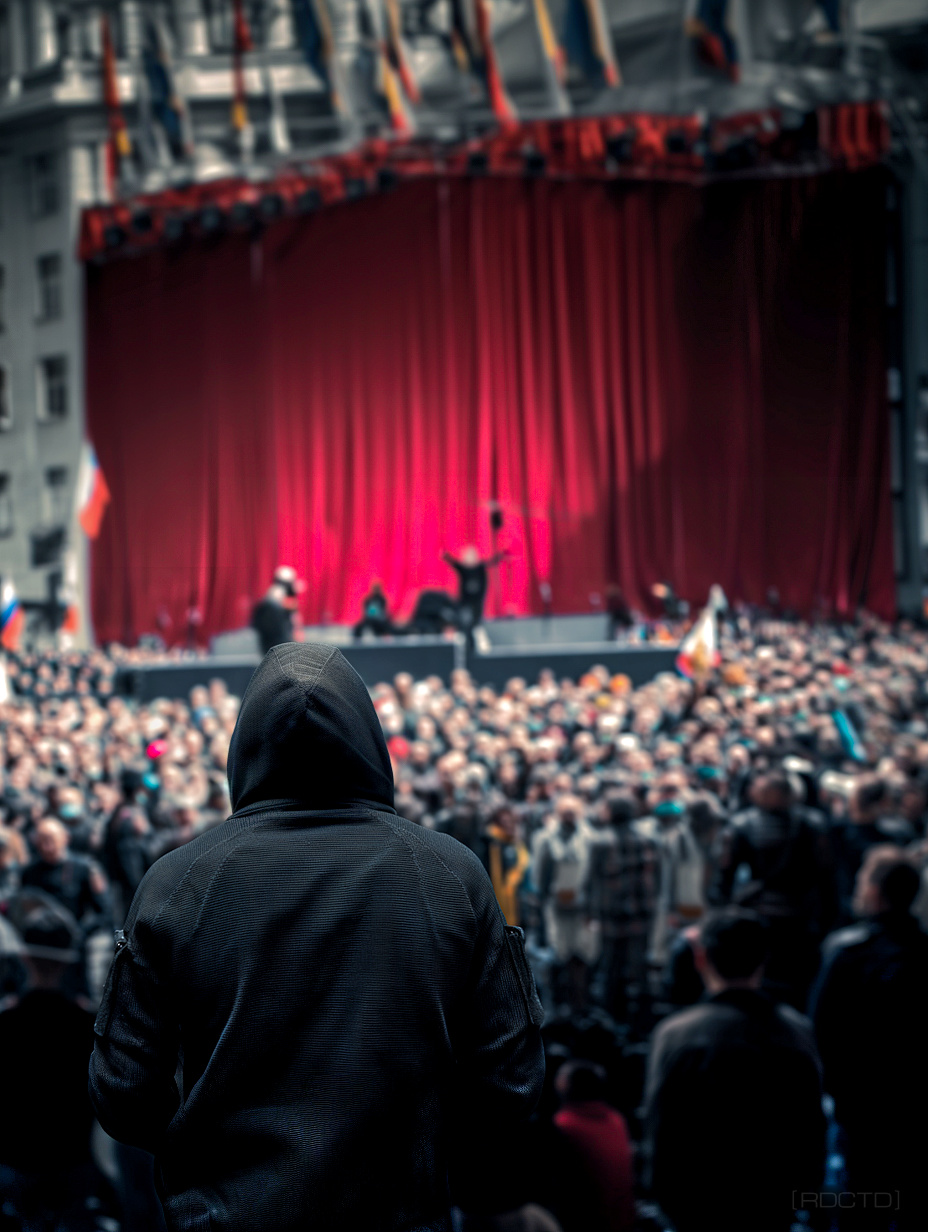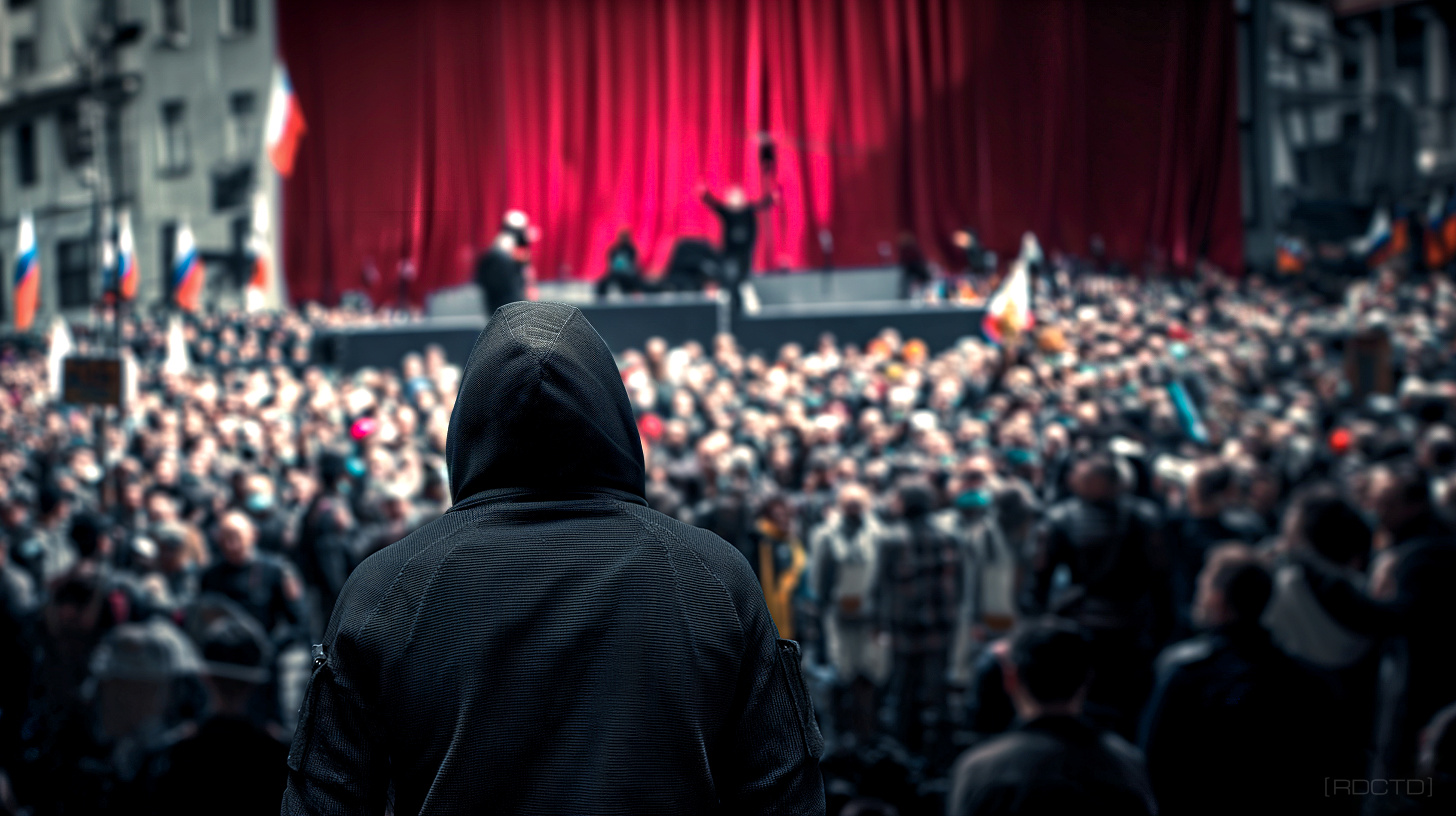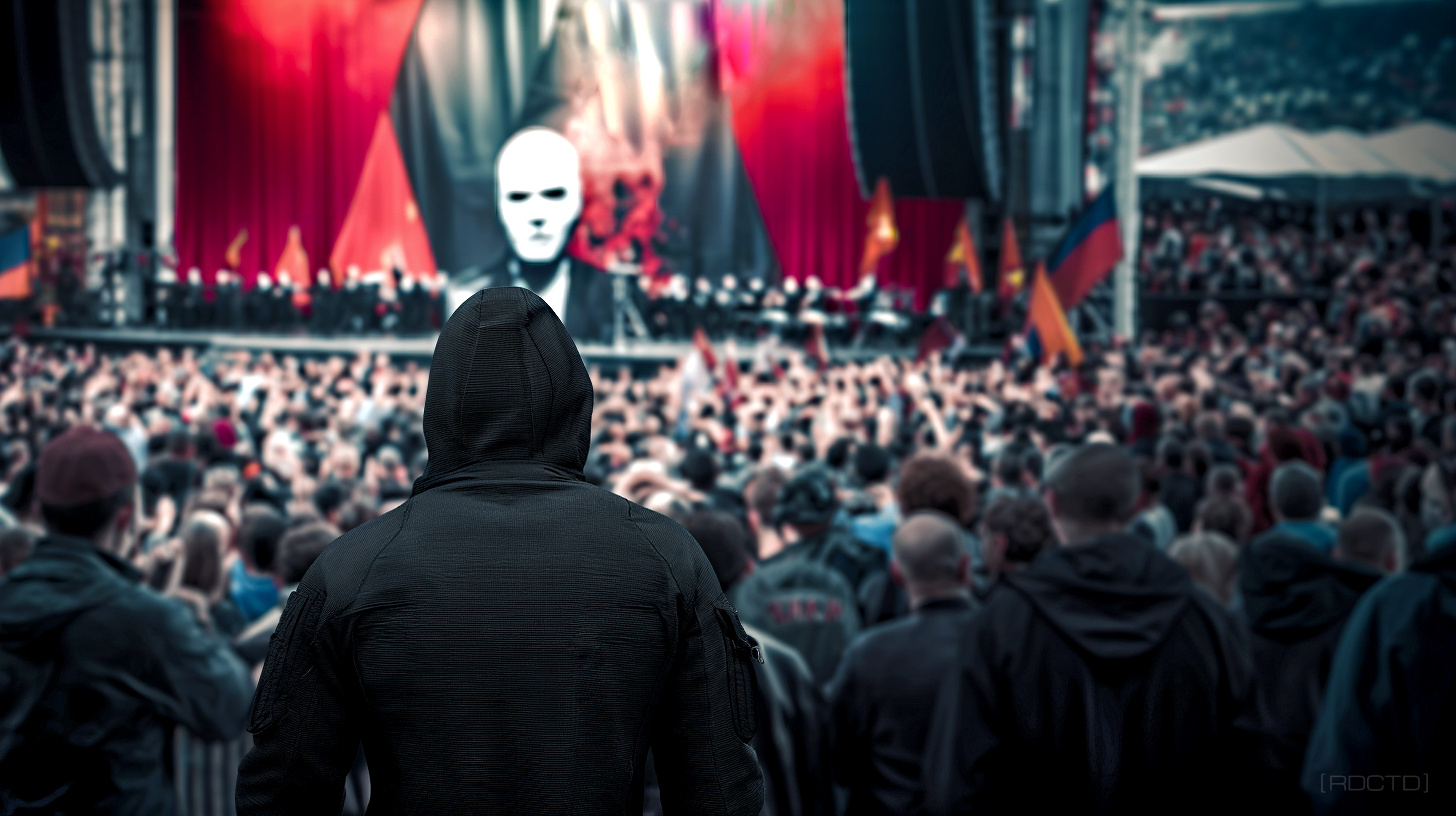 *OPS is a series of intel about possibly true or reversely false experiences of covert operatives, operators, assets and agents. Edited, altered, fictional and or true accounts of operations and events.
*OPS is a series of intel about possibly true or reversely false experiences of covert operatives, operators, assets and agents. Edited, altered, fictional and or true accounts of operations and events.![]()
// This covert operation may or may not describe actual events. Places, names, timelines and details may have been modified, omitted or added in part or as a whole if inspired by events and actions that may or may not have actually occurred and people that may or may not have existed. Verifiably unverifiable but with the narrative intact. //
![]()
![]()
[ 0001 ] I arrived under a dust-orange sky that made the capital look like it had been dipped in nicotine. My cover, a regional supply-chain consultant – the kind who speaks in acronyms and keeps receipts in crisp envelopes.
The passport stamps fit the story. The email trails were seeded months earlier. I joked at the hotel desk about backlog on port manifests and the clerk smiled the way people smile when they’ve learned to be careful with strangers.
The bellman pointed out the new portrait in the lobby—wide-jawed, newly elected, gaze fixed somewhere above the horizon. It had gone up overnight, the frame so fresh it still smelled of varnish.
Every authoritarian government begins as a promise to protect the people – and ends by protecting itself from them.
![]()
[ 0002 ] That was the first thing you noticed, the speed. Authoritarianism didn’t descend like a curtain. It advanced like a time-lapse of mold, blooming in corners – television, courtrooms, fuel depots – before anyone admitted the house was sick. We used to call that the “velocity of capture.”
One ministry per week. Then the courts. Then the ports. Then the oxygen of the place, the broadband backbone and the FM band.
You can’t dismantle an authoritarian regime with outrage. You dismantle it with evidence.
![]()
[ 0003 ] My liaison, a journalist who’d spent half her life combing budgets, met me at a bakery that had started keeping odd hours. She laid out the new press rules between sips of bitter coffee.
Every story had to carry a paragraph praising “stability.” If you filed without it, your editor received a midnight visit from men with even haircuts.
She didn’t lower her voice when she said it. Learned helplessness sets in faster than fear. People stopped whispering and started shrugging. That’s how you know the ground has shifted.
In a democracy, power asks permission. In an authoritarian regime, power forgives itself.
![]()
[ 0004 ] Tradecraft under those operational conditions isn’t elegant… it’s patient, sluggish but methodical. I rotated cafes, varied routes, killed the auto-fill in my phone so my fingers couldn’t betray habit.
My signals were low-watt – folded receipt in a vase, a bicycle seat turned 90 degrees. Cutouts were students who needed cash and believed nobody paid attention to students. I didn’t teach them anything that would get them hurt.
The information flowed one way, and it flowed slow by design. The objective was fidelity, not heroics. Map the pressure points. Learn who was starving and who was feasting. Learn what would break first.
They replaced law with loyalty, and called it reform.
![]()
[ 0005 ] The president called it a “corrective election,” as if democracy were a crooked picture needing to be straightened. The old electoral commission was dissolved for “malfeasance,” then replaced by appointees who attended the same law school as the president’s chief of staff.
Ballot boxes were rerouted through police stations “for security.” When a precinct tally went missing, the interior minister blamed humidity.
Later, the courts cited “doctrines of necessity.” You could feel language being repurposed like expropriated property. Words that once constrained power became prybars to extend it.
No authoritarian state ends cleanly, it just runs out of people willing to pretend.
![]()
[ 0006 ] I took a room above a mechanic’s shop to watch the neighborhood. The owner had been told he needed a “Patriotic Business Certificate” to buy spare parts, which meant paying for a permit and hanging the portrait. He did both.
The certificate arrived, but the parts never did. The regime discovered you don’t need to nationalize industries if you can nationalize bottlenecks. Control the points where things become scarce – fuel, customs stamps, telecom repairs – and you control the lives tied to them.
People waited in lines that looped around gas stations like constrictors. A government backbencher opened a chain of “efficiency kiosks” that sold line-skip coupons. His convoy moved through red lights with sirens borrowed from ambulances.
Freedom is fragile not because it’s weak, but because it’s voluntary.
![]()
[ 0007 ] Curfews came next. “Temporary measures,” always “temporary.” Midnight to 5 a.m., then 10 p.m. to 6 a.m., eventually dusk. Not for safety, for rhythm. Curfews erase the night economy, the informal networks where rumor competes with propaganda.
A street vendor told me her flour ration had been halved after she’d posted a photo of spoiled rice. The platform flagged it as “context lacking,” then suspended her account for “coordinated inauthentic behavior.”
The new telecom regulator (staffed by personal friends of party officials) had signed a “harmonization” agreement with the platform the previous week.
Authoritarian leaders don’t destroy institutions, they inhabit them like parasites until the shell is all that remains.
![]()
[ 0008 ] The economy didn’t crash immediately, it tilted. The favored districts glowed – new streetlights, cameras perched like metal crows, fresh tarmac. Elsewhere the asphalt broke apart and swallowed shocks.
Teachers got paid in vouchers. Doctors started asking patients to bring their own gauze. Pharmacies displayed towers of vitamin water and a single dusty box of antibiotics kept “for friends.”
The currency controls arrived with patriotic jingles. Dollars became contraband except for “strategic importers.” A friend who ran a kiln began commuting with cash taped to his thigh. He was stopped one morning by a soldier who patted him down with embarrassed hands and then asked for a job at the kiln.
You don’t lose democracy overnight, you misplace it one compromise at a time.
![]()
[ 0009 ] When the first protest formed at the university, it looked like a concert audience waiting for a band to start. The students held cardboard with slogans that rhymed; the rhyme mattered because rhyme is easier to chant through fear.
The police didn’t rush them. A drone appeared instead, low, whining, purposeful. Later, the most vocal students discovered they couldn’t make ATM withdrawals. Then roommates reported that tuition portals rejected their logins for “disruptive activity.”
That’s a modern hallmark of authoritarian rule: the sanction before the baton. You limit a citizen’s surface area first – banking, school, utilities – so the struggle to breathe replaces the appetite to resist.
The regime didn’t censor the press – it purchased its microphones.
![]()
[ 0010 ] My contacts in the civil service learned to speak in riddles. A clerk told me, “We’ve increased redundancy at the archives,” which meant the purge had started. Digital records are fragile when the keepers are willing.
The state broadcaster ran a story about “noncompliant databases” and cheered the move to paper “for sovereignty.” A week later, property registries – especially in districts that voted the wrong way – suffered “indexing errors.”
A minister’s brother bought half a neighborhood for the price of a used car because the old titles couldn’t be “verified.” Corruption wasn’t an aberration, it was policy implemented with bureaucratic grammar.
Every authoritarian state needs enemies. If none exist, it will manufacture them.
![]()
[ 0011 ] Evenings, I walked. You learn on foot what cables can’t teach. Cafes replaced tip jars with donation cans labeled “security contribution.”
Municipal workers spray-painted numbers on houses for “resilience mapping,” then a plainclothes unit returned to the high-numbered blocks, the ones with more rooms, more windows, more books. A barber explained the logic well: “They want to know who has options. Options are threats.”
The first casualty in an authoritarian state isn’t truth – it’s memory. Truth can hide, memory has nowhere to run.
![]()
Every dictator starts as someone who can’t take criticism.
![]()
[ 0012 ] One night, the power cut out in a grid pattern too tidy to be an accident. Street by street, darkness advanced like an algorithm. A pickup without plates idled at corners where the lights failed longest.
The next morning, a priest was detained for “tax irregularities,” a union leader was filmed in a compromising position, and a human-rights attorney learned that a case file had been mislaid by a clerk who suddenly had a new car.
Fear wasn’t sprayed in one burst – it was fogged, consistently, until the walls sweated with it.
They didn’t need to rewrite history. They just stopped teaching it.
![]()
[ 0013 ] I kept my routines quiet. My maildrops were mundane – children’s homework slipped into a library shelf, a note tucked behind an out-of-order payphone panel. When I had to meet a source, we spoke into traffic or near generators.
A man whose brother had gone missing after posting a meme – just a meme, he kept saying – gave me the names of the men who’d taken him. They wore boots that left standard issue prints and cologne that wasn’t imported. You could smell the embargo on them.
He asked what he should do. I told him the truth: keep records, protect the living, don’t trade your safety for a show of courage the regime will use to feed its appetite. There’s nothing noble about creating more targets.
A government that demands worship is already dying.
![]()
[ 0014 ] The president began touring factories that weren’t running. He’d stand in front of dead conveyor belts and call for “national sacrifice,” the phrase authoritarian leaders love because it never includes them.
His motorcade required eight SUVs to carry the sacrifice.
When he visited a hospital, the staff were replaced for the day by party activists in borrowed scrubs. Photos showed smiling “doctors” clapping with brand-new stethoscopes around their necks. Real nurses watched from the stairwells, hands inside their pockets to quiet their anger.
Power feeds on obedience, but it starves without spectacle.
![]()
[ 0015 ] Every authoritarian project needs a legal brain. Ours was a judge who’d written a law review article arguing that “order is the parent of liberty.” He was polite, always wore a handkerchief, and invalidated entire sections of the constitution like he was slicing bread.
He assured foreign investors their capital was “protected under emergency guarantees,” and they nodded because the rates were good.
For six months machinery arrived, gates were built, and a new export terminal cut a ribbon big enough to make three dresses. Then the minister of infrastructure announced a “temporary tax on foreign remittances,” which blossomed overnight into a seizure.
Contracts were sent to arbitration in a court the regime had packed with loyalists. Capital fled in the way water flees a breached hull, straight down.
The regime didn’t outlaw freedom, it redefined it until nobody noticed it was gone.
![]()
[ 0016 ] Censorship graduated from clumsy to efficient. At first the blocks were obvious: the press couldn’t say “coup,” only “transition;” the opposition couldn’t say “boycott,” only “nonparticipation.”
Later, metadata told the story.
Messages delivered but not read. Accounts that existed but never posted. The state didn’t need everyone to believe, it needed everyone to doubt. Doubt is cheaper than faith and does the same work.
Even the loyal dream of leaving. That’s how a dictator’s regime rots from within.
![]()
[ 0017 ] You asked who suffered. Everyone except the ones who smiled from billboards.
Teachers who taught arithmetic under portraits of men who’d never balanced a budget.
Midwives who lost count of the infants they couldn’t save because the generator coughed out its last breath.
Men who sold their tools to buy insulin that tripled in price.
Women who pawned their wedding bands for a ride to the border and then learned the border was “closed for maintenance.”
A violinist who practiced in stairwells because the orchestra had been replaced by a choir that sang only about the greatness of the regime.
Children who played a game called “checkpoint” and argued over who had to be the one without the uniform.
Authoritarianism is bureaucracy with rotten teeth.
![]()
[ 0018 ] I gathered proof – documents, texts, emails, diaries, air-quality charts showing the refineries ran full tilt the night before the election to produce fuel for buses that carried “volunteers.”
Photographs of ballot boxes with serial numbers that didn’t match their precincts. Lists of transfers within the police, moving seasoned investigators out and moving loyalists in. A stamped shipping manifest that showed tear gas containers as “agricultural aerosol.”
None of it changed conditions on the street. But the record matters. Authoritarians count on amnesia. Memory is a kind of resistance.
Corruption isn’t the failure of authoritarianism, it’s the feature.
![]()
[ 0019 ] The final weeks were the most dangerous because the regime had learned to trust its own myth. That’s when they grow clumsy.
They packed the high court in daylight. They passed a law requiring exit permits but forgot to staff the counters, creating a black market the intelligence chief’s nephew ran from a café.
They announced a national dialogue and seated only themselves at the table. They painted murals of factories and hospitals with a shade of blue they’d copyrighted. They thought color could do the work of policy.
Facts are fragile when the government speaks louder.
![]()
[ 0020 ] The night I left, a rainstorm scrubbed the air clean and made the city feel honest, almost. Water found every crack the government had made and widened it.
I took a bus – no drama, no chases, just a seat near the back and a bag that rattled with receipts and memory cards. At a checkpoint a young soldier peered in, then waved us through with a tired wrist.
He’d shaved his head recently, the line was still red. He looked like a kid who wanted to learn a trade but learned a uniform instead.
The state’s cruelty always comes gift-wrapped in patriotism.
![]()
[ 0021 ] There’s no tidy ending. Authoritarian rule rarely collapses in one scene. It erodes, or it metastasizes. Countries don’t heal because someone abroad speaks the right sentence in a room with air-conditioning. They heal because their people accumulate enough small refusals to tip the weight.
My work was to witness and to keep witnesses from standing alone. That’s an operative’s ethic when the game turns like this: keep the channels open, keep the record sharp, keep people breathing.
Authoritarianism doesn’t arrive with gunfire. It arrives with applause and paperwork.
![]()
[ 0022 ] I’ve worked in war zones and kleptocracies and bureaucracies that all petrified. And I still believe this with something like religious conviction: power hates daylight. It can endure it for a while, but it always blinks.
Authoritarians try to build a nation out of silence and spectacle through force, and they can keep it standing surprisingly longer than you’d think. But you can’t eat spectacle. You can’t cure a fever with silence.
In the end, people remember what a normal morning felt like. The smell of bread, the noise of schoolyards, the dignity of a queue that moves. And they start asking why the portrait on the wall eats so much and returns so little.
Authoritarianism is the weaponization of insecurity.
![]()
 [ 0023 ] I left as I arrived, allegedly ordinary. On the plane I watched the capital shrink into a soft grid of sodium light, and I wrote down names and dates until my hand cramped. It wasn’t duty. It was inventory.
[ 0023 ] I left as I arrived, allegedly ordinary. On the plane I watched the capital shrink into a soft grid of sodium light, and I wrote down names and dates until my hand cramped. It wasn’t duty. It was inventory.
Somewhere down there a teacher was grading papers by candlelight, a nurse was bartering for bandages, a barber was counting disappearances by appointment gaps, and a young soldier was wondering how long one can stand at a checkpoint before he starts dreaming of a gate opening.
My task was to make sure the world could’t pretend none of them existed. That’s the quiet discipline of our tradecraft, and it’s the only antidote I’ve ever seen to the varnished portrait that shows up overnight.
![]()
![]()
// The dictator’s greatest victory is convincing you he’s necessary.
![[RDCTD]](https://rdctd.pro/wp-content/uploads/RDCTD-Covert-Operative-Tradecraft-Guide-LOGO-tk.png)
![[RDCTD]](https://rdctd.pro/wp-content/uploads/RDCTD-Covert-Operative-Tradecraft-Guide-LOGO-mobile.png)

